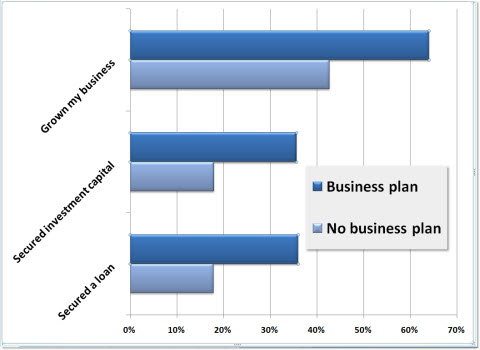I am spending a lot of time currently reading research on new firm formation — the process that occurs as opportunity, entrepreneur, team, and outside partners interact to create a new venture.
Much of the research shows that successful firms (across various metrics) make use of business plans and business planning.
Tim Berry’s firm has surveyed over 3000 of its users and have found some impressive statistics. Clearly this is not a random sample of ‘entrepreneurs’ and Berry has a link to answer statistical design and methodology. But the bottom line is, even if this sample is biased, its biased towards strong, growing firms and that is a great group to learn from.
From the entry:
Simply put, those who finished their business plans were about twice as likely to successfully grow their business, get investment, or land a loan than those who didn’t. You can see the numbers on the chart.
For the record, we sent the results to the University of Oregon Department of Economics for validation. I posted more details about that study and the statistical validation yesterday on our Business in General blog.

